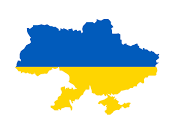Yulia Tymoshenko: A Political Trailblazer’s Impact on Ukraine’s Democratic Journey
In the turbulent landscape of Ukrainian politics, one figure has left an indelible mark on the country’s democratic evolution: Yulia Tymoshenko, revered by some as a champion of reform and vilified by others as a divisive figure, Tymoshenko’s political career embodies the complexities and challenges of Ukraine’s transition from post-Soviet state to burgeoning democracy.
Tymoshenko’s journey into politics began against the backdrop of Ukraine’s independence in the early 1990s. With a background in economics and business, she quickly rose to prominence as a formidable figure in the energy sector, co-founding the Unified Energy Systems of Ukraine and establishing herself as a powerful businesswoman.
However, it was Tymoshenko’s foray into politics that would thrust her onto the national stage. In the early 2000s, she emerged as a vocal critic of Ukraine’s entrenched oligarchic system and the corruption that pervaded the country’s political elite. Her fiery rhetoric and populist appeal resonated with millions of Ukrainians disillusioned with the status quo.
Tymoshenko’s rise to prominence reached its zenith during the 2004 Orange Revolution, a popular uprising that overturned a fraudulent presidential election and ushered in a new era of hope and optimism for Ukraine. As one of the leaders of the movement, she played a pivotal role in galvanizing public support and mobilizing protesters to demand free and fair elections.
Following the Orange Revolution, Tymoshenko served as Prime Minister of Ukraine on two separate occasions, from 2005 to 2006 and again from 2007 to 2010. During her tenure, she pursued an ambitious agenda of reform, advocating for closer ties with Europe, economic liberalization, and anti-corruption measures.
However, Tymoshenko’s political career has not been without controversy. Her tenure as Prime Minister was marked by allegations of corruption and abuse of power, and she faced criticism for her confrontational style and polarizing rhetoric. In 2011, she was convicted and imprisoned on charges widely seen as politically motivated, sparking international condemnation.
Despite her legal troubles, Tymoshenko remained a potent force in Ukrainian politics, leading her party, the All-Ukrainian Union “Fatherland,” from behind bars and continuing to advocate for reform and democracy. Her release from prison in 2014, following the ousting of President Yanukovych during the Euromaidan protests, marked a new chapter in her political career.
Today, as Ukraine continues to grapple with the challenges of corruption, conflict, and economic instability, Yulia Tymoshenko remains a polarizing figure in the country’s political landscape. Her legacy is one of both triumph and controversy, reflecting the complexities of Ukraine’s democratic journey and the enduring struggle to build a more just and equitable society.
As we reflect on the contributions of Yulia Tymoshenko, let us acknowledge her role as a political trailblazer who has left an indelible imprint on Ukraine’s history. Whether revered or reviled, her impact on the country’s democratic evolution cannot be denied, and her legacy will continue to shape Ukraine’s future for years to come.
